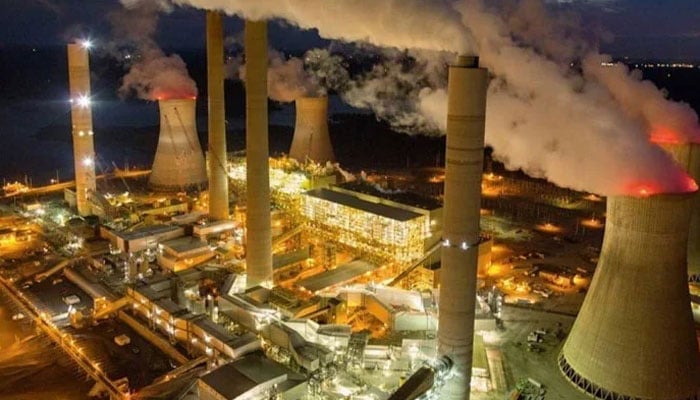Coal consumption to double by 2030: report
KARACHI: Coal consumption in power generation and the industrial sector is expected to almost double by 2030, according to a new report.
A study by the Pakistan Credit Rating Agency (PACRA) forecasts coal usage to reach 50 million metric tonnes by the end of the decade, up from 23.9 million metric tonnes in the current fiscal year due to the government’s preference for utilizing domestic coal resources. This would elevate coal to the country’s second-largest primary energy source.Pakistan possesses substantial coal reserves, located in Sindh, Punjab, and Balochistan, totalling 186 billion metric tonnes as of FY24.
Thar coalfield spans more than 9,000 sq-km in Thar Desert, Tharparkar, with coal reserves totalling 175 billion metric tonnes. Sindh Engro Coal Mining Company (SECMC) holds 100 per cent ownership of Thar coalfields.
The SECMC stands as Pakistan’s foremost coal producer, managing the country’s initial open-pit lignite mine in Block II of the Tharparkar region. Operating at a current annual mining capacity of 7.6 million metric tonnes, it is dedicated to supplying high quality lignite coal to power producers across Pakistan. Prior to FY22, Pakistan was majorly reliant on imported coal. During FY19-22, imports averaged 68 per cent of the country’s total coal supply. However, to preserve foreign exchange reserves and mitigate price uncertainties in the international market, the government’s stance has increasingly shifted towards local coal.
Therefore, beginning FY23, the proportion of local to imported coal has reversed to 63 per cent from 37 per cent. The share of imported coal further declined to 24.7 per cent in the first nine months of FY24 compared to 42.7 per cent in the same period a year ago, largely owing to higher coal prices.
During FY23, Pakistan imported 27.5 per cent of coal from South Africa, 25.5 per cent from Indonesia, and 31 per cent from Afghanistan.Analysts commenting on the high usage of coal in the future termed it alarming. “On what basis is the government launching into this zest for coal-based energy when our fossil fuel-based energy sector is already responsible for 76 per cent of carbon dioxide emissions in the country?”, noted Zeenia Shaukat from Knowledge Forum, working in the fields of environment and community development.
She said that at the micro level, the drive for ‘domestic coal’ (which is lignite based) is mainly reliant on Thar coal. All evidence suggests that the current Thar coal mining drive has caused massive environmental and community level damage.
“These include heavy metal contamination of Thar’s water aquifers caused by coal-fired power plants. Water tests have revealed alarmingly elevated levels of heavy metal toxins such as arsenic, selenium, chromium, lead, and mercury in Thar’s aquifers and drinking water samples taken from dug wells across Thar Coalfield Block II. Mercury levels, for instance, have been recorded at 9400 per cent of the recommended limits in some villages of this area," she pointed. She opined Pakistan needs a renewables-based decentralized power system not only because of the immense potential and lowering financial cost of renewables but also because of the utter distress that fossil fuel-based energy pursuit has caused us.
She said that investing in environmentally damaging sources such as coal, gas, oil and even hydro has a cost in terms of human capital and development, which is neither factored into the pricing of fossil fuel-based energy sources nor affected communities and the larger population that deal with energy emissions get any compensation for health losses.
-
 Super Bowl 2026 Live: Seahawks Lead Patriots 3-0 After Defensive First Quarter
Super Bowl 2026 Live: Seahawks Lead Patriots 3-0 After Defensive First Quarter -
 Bad Bunny's Super Bowl Halftime Show: What Time Will He Perform Tonight?
Bad Bunny's Super Bowl Halftime Show: What Time Will He Perform Tonight? -
 Where Is Super Bowl 2026 Taking Place? Everything To Know About The NFL Showdown
Where Is Super Bowl 2026 Taking Place? Everything To Know About The NFL Showdown -
 Drake 'turns Down' Chance To Hit Back At Kendrick Lamar At Super Bowl
Drake 'turns Down' Chance To Hit Back At Kendrick Lamar At Super Bowl -
 Sarah Ferguson Had A ‘psychosexual Network’ With Jeffrey Epstein
Sarah Ferguson Had A ‘psychosexual Network’ With Jeffrey Epstein -
 Czech Republic Supports Social Media Ban For Under-15
Czech Republic Supports Social Media Ban For Under-15 -
 Khloe Kardashian Shares How She And Her Sisters Handle Money Between Themselves
Khloe Kardashian Shares How She And Her Sisters Handle Money Between Themselves -
 Prince William Ready To End 'shielding' Of ‘disgraced’ Andrew Amid Epstein Scandal
Prince William Ready To End 'shielding' Of ‘disgraced’ Andrew Amid Epstein Scandal -
 Chris Hemsworth Hailed By Halle Berry For Sweet Gesture
Chris Hemsworth Hailed By Halle Berry For Sweet Gesture -
 Blac Chyna Reveals Her New Approach To Love, Healing After Recent Heartbreak
Blac Chyna Reveals Her New Approach To Love, Healing After Recent Heartbreak -
 Royal Family's Approach To Deal With Andrew Finally Revealed
Royal Family's Approach To Deal With Andrew Finally Revealed -
 Super Bowl Weekend Deals Blow To 'Melania' Documentary's Box Office
Super Bowl Weekend Deals Blow To 'Melania' Documentary's Box Office -
 Meghan Markle Shares Glitzy Clips From Fifteen Percent Pledge Gala
Meghan Markle Shares Glitzy Clips From Fifteen Percent Pledge Gala -
 Melissa Jon Hart Explains Rare Reason Behind Not Revisting Old Roles
Melissa Jon Hart Explains Rare Reason Behind Not Revisting Old Roles -
 Meghan Markle Eyeing On ‘Queen’ As Ultimate Goal
Meghan Markle Eyeing On ‘Queen’ As Ultimate Goal -
 Japan Elects Takaichi As First Woman Prime Minister After Sweeping Vote
Japan Elects Takaichi As First Woman Prime Minister After Sweeping Vote




